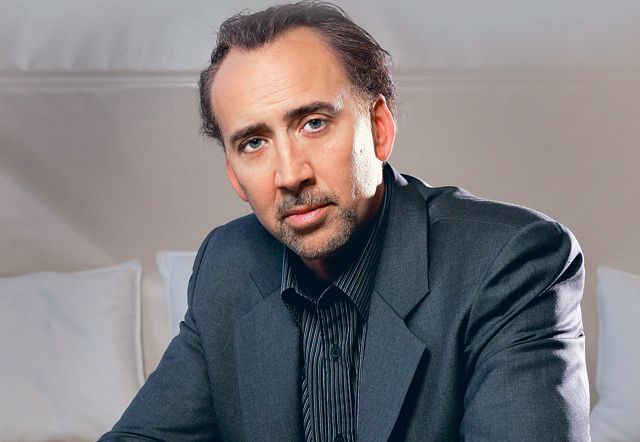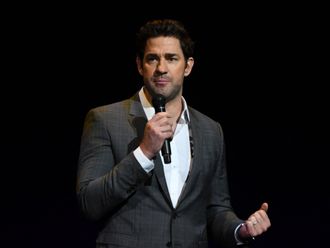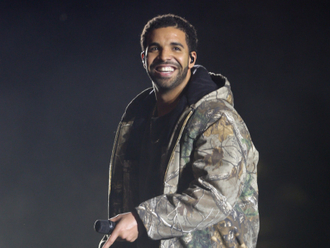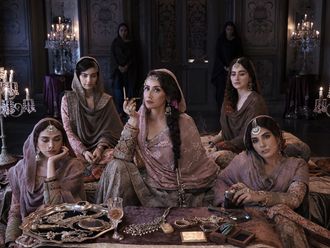Nicolas Cage figures he owes no apologies when critics gripe about all the Hollywood action flicks he's done. An Academy Award winner for Leaving Las Vegas, Cage says those commercial movies provide the freedom to do smaller, smarter films such as his offbeat cop tale Bad Lieutenant: Port of Call New Orleans.
And he notes that his big studio flicks, including the National Treasure adventures, also do something his critics overlook: entertain big, big audiences.
"I am eclectic, and I do like to make many different kinds of films. And it's true that if you can have a certain level of bankability, you can get movies greenlit, movies that maybe would not have a chance because of the material. The subject matter is too edgy," Cage, 45, said.
"But that's not to denigrate the movies that I've made like National Treasure, because those movies make a lot of people happy. They provide a ritual, if you will, for families to go and share something with their children... I feel that I'm applying myself in a very decent way to be able to make movies like that."
Cage — who is suing his former business manager for $20 million (Dh73.448 million), claiming mismanagement that led him toward financial ruin — has a busy release schedule to help restore his personal fortune. He has three movies due out in 2010: the supernatural saga Season of the Witch, with Cage as a 14th century knight transporting a woman whose sorcery is blamed for the black plague, Kick-Ass, an action comedy in which he plays a vigilante dad who meets up with a teenage superhero wannabe and The Sorcerer's Apprentice, a live-action tale that expands on the Mickey Mouse escapade in Walt Disney's animated classic Fantasia.
Violently humorous
Adapted from a poem by Johann Wolfgang von Goethe, The Sorcerer's Apprentice stars Cage as a 1,500-year-old disciple of the wizard Merlin who takes on his own pupil to combat rising evil. Cage said it's another family-friendly fantasy tale, the opposite of Bad Lieutenant, whose explosive violence and extreme drug use are leavened by raucously twisted humour.
Directed by Werner Herzog, the film stars Cage as a New Orleans police detective traipsing about post-Katrina New Orleans, snorting, popping and smoking whatever drugs he can while threatening witnesses in pursuit of savage killers.
The film is Herzog and Cage's take on the idea of a cop without conscience, doing his job in a sometimes hallucinatory fog.
"While we were manoeuvring the film into some very stark, dark, abysmal humour, black humour, I always sensed it would work, because sometimes I would see Nicolas Cage at arm's length from me in front of the camera... and I was exploding in laughter," Herzog said.
"He notices how I'm gagged and turning purple, and he adds something else, and the moment that we call ‘cut', I'm exploding in laughter. I knew it would come across to an audience in a similar way."
Early in his career, Cage changed his last name from Coppola, saying he did not think he would get a fair shot from filmmakers who knew he was the nephew of Francis Ford Coppola.
Though he worked with his uncle on Rumble Fish, The Cotton Club and Peggy Sue Got Married, Cage made his own way, mixing things up with smaller films (Birdy, Wild at Heart, Racing With the Moon), acclaimed fan favourites (Moonstruck, Raising Arizona, Adaptation) and volcanic action (The Rock, Con Air, Face/Off).
Bad Lieutenant marked Cage's first time back working in New Orleans since he shot his directing debut there with 2002's Sonny. Cage said he was anxious about returning, because he had a life-changing experience in New Orleans during the Sonny shoot.
"In some ways, you could say that I was reborn in New Orleans, and I had this terrifying, mystical experience," said Cage, who would not provide details about what happened.
Critics may assail Cage for his action movies, but they're heaping praise on the actor for the frenzy and fearlessness of his role in Bad Lieutenant.
New Orleans might have something to do with that, Cage said. Going back was a catharsis, and the city's spirit helped inspire his performance, he said. "New Orleans is not like any place else in the world. It was colonised by the French and Spanish, it has these African energies, and all these things sort of roll into one to create this genius loci, which is the reason we have jazz," Cage said.
"I felt that I could embrace that, and that I could maybe have a bit of jazz, or my understanding of jazz, in the delivery. Which, my understanding is, that you know the lines so well that you go off-page and you improvise, and you can riff, and you can soak that energy up if you're willing to listen to it. And that's what I think happened."












